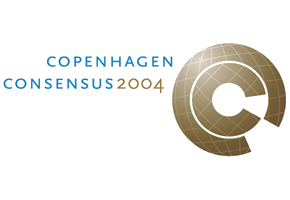Copenhagen Consensus: Population and Migration Assessment, Martin
Assessment Paper
Philip L. Martin prepared an Assessment Paper for Copenhagen 2004 on Population and Migration. The working paper used by the Expert Panel is available for download here, the finalized paper has been published in Global Crises, Global Solutions by Cambridge University Press.
For most of human history, migration has been constrained by physical barriers and transport difficulties rather than government action. More recently, sharply different rates of population and economic growth across the world have combined to make many workers from poorer countries eager to move to countries where more jobs are available and wages are much higher. Modern communications make the differences even more visible, and modern transport makes migration easy and affordable. But migrants are not always welcome in rich countries.
In an ideal world, such economically motivated migration would benefit migrants, increase global GDP and promote economic convergence between rich and poor countries. After a time, this would reduce the pressure to migrate. The challenge addressed in this chapter is ensure that the migration which occurs promotes equality. Global economic convergence is a goal supported by most economists and other commentators. However, there is no consensus on how migration might achieve this, with strong arguments being made both for and against.

